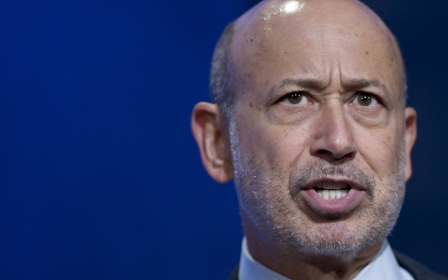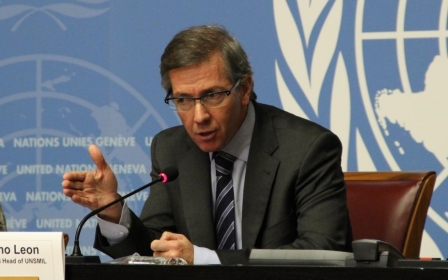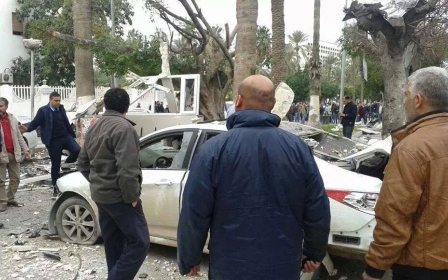Letter reveals intelligence ties between Blair's Britain and Gaddafi's Libya

Lawyers have uncovered a letter in which former UK Prime Minister Tony Blair thanks Muammar Gaddafi for the “excellent co-operation” between the spy agencies of the UK and Libya.
The letter, written in 2007, shows Blair addressing the strongman Libyan leader simply as “Dear Muammar,” before informing Gaddafi that the government’s attempt to deport two alleged members of the Libyan Islamic Fighting Group (LIFG) back to Libya was about to fail.
A day after the letter was written, a UK court ruled that LIFG members could not be deported to Libya as they were likely to face torture.
In the letter, revealed by The Guardian on Saturday, Blair says he is “very disappointed” at the court’s decision.
He goes on to praise the “progress” made on co-operation between UK intelligence and their Libyan counterparts under Gaddafi, “not least in the crucial area of counter-terrorism”.
“I am determined to see that partnership develop still further,” the Prime Minister concluded, before signing off “Best wishes, Yours ever, Tony”.
The document was written at a time when the UK and Libyan intelligence services were conducting joint operations.
In 2006 with Libyan agency was permitted to operate in the UK, and allegedly began intimidating Libyan refugees in the hope of persuading them to become informants.
The letter is one of a host of documents uncovered in abandoned buildings after Libya’s 2011 revolution, which saw Gaddafi ousted and ultimately murdered by rebels.
London-based lawyers are using these documents in a new case against the UK’s intelligence services, MI5 and MI6, as well as the Foreign Office and the Home Office.
12 Gaddafi opponents allege that they were detained, mistreated or had their liberty restricted because of collaboration between the UK and Libyan intelligence services.
Among the revelations uncovered in the bundle of documents is evidence that British intelligence services sent their North African counterparts 1,600 questions to be put to two men kidnapped by Libyan agents in the UK and flown to prison in Libya, where they say they were tortured.
The document raises questions about the 2012 pay-out of almost $3.3 m given by the UK government to Sami al-Saadi, a Libyan dissident who claims British intelligence services colluded in his family’s illegal rendition to Libya to face torture.
Asked why he had accepted the pay-out, Saadi said: “I started this process believing that a British trial would get to the truth in my case”.
Saadi explained that the UK government had tried to push the case through a secret court.
“I went through a secret trial before, in Gaddafi’s Libya. It is not an experience I care to repeat”.
Responding to the documents released on Saturday, Tony Blair’s office told the Huffington Post that “there is nothing secret about the fact that the UK and the then Libyan government co-operated in the fight against terrorism… None of that means the UK government accepted or condoned torture”.
The “co-operation” between Blair and Gaddafi continued after the former left office in 2007.
It was revealed in 2011 that Blair flew to Libya at Gaddafi’s expense twice, in 2008 and 2009.
During one of the trips, Blair reportedly held a joint meeting with Gaddafi and a US billionaire, who was asked for help to build new beach resorts along Libya’s Mediterranean coastline.
At the time, a former British ambassador to Libya accused the former PM of “using his Downing Street contacts to further his business interests”.
Blair faced tough questions over the alleged meetings, which occurred at a sensitive time for UK-Libyan relations.
The Libyan government was pushing for the release of Abdel Masset al-Megrahi, the terminally ill man convicted of planning the 1988 Lockerbie bombing.
Megrahi was eventually released back to Libya – Blair denied any involvement in the decision.
In the wake of that scandal Blair, who is a Middle East peace envoy, has been accused of endangering Britain’s national security through his post-term activities.
Middle East Eye propose une couverture et une analyse indépendantes et incomparables du Moyen-Orient, de l’Afrique du Nord et d’autres régions du monde. Pour en savoir plus sur la reprise de ce contenu et les frais qui s’appliquent, veuillez remplir ce formulaire [en anglais]. Pour en savoir plus sur MEE, cliquez ici [en anglais].




